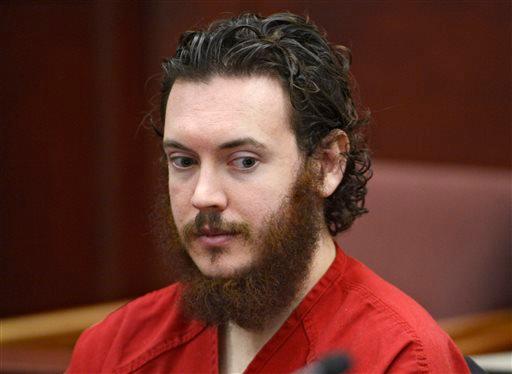CENTENNIAL, Colo.—Jurors quickly rejected Colorado theater shooter James Holmes’ claim that he was legally insane when he killed 12 people and injured 70 others, but the next phase of his trial could be more difficult as they weigh the extent of his mental illness against the enduring pain and heartache he caused.
The same jury that convicted Holmes of 165 counts of murder, attempted murder and other crimes stemming from his July 20, 2012, theater attack must soon decide whether he should pay with his life. His sentencing begins Wednesday and is expected to last a month. Testimony experts say it could be even more emotional and polarizing than the 11-week trial.





